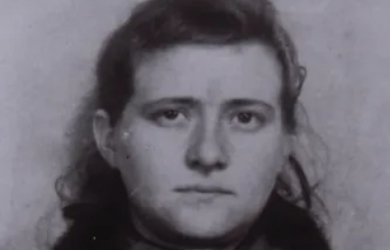 Haika was born in Białystok, Poland. As a teenager she joined the HaShomer HaTzair youth movement. As a leader of the movement in Poland, she was sent to the town of Brześć Litewski to organize the movement’s activities there and in the surrounding region.
Haika was born in Białystok, Poland. As a teenager she joined the HaShomer HaTzair youth movement. As a leader of the movement in Poland, she was sent to the town of Brześć Litewski to organize the movement’s activities there and in the surrounding region.
When World War II erupted, she moved to Vilna (now Vilnius, Lithuania), where she was active in the emergency underground leadership of HaShomer HaTzair. Upon the Nazi invasion of the Soviet Union in 1941, she returned to Bialystok, where she helped organize the underground movement in the Białystok Ghetto. She served as a courier between that ghetto and those of Vilna, Lublin, Warsaw and others. Using forged papers, she managed to pass as a Polish. Her Polish identity enabled her to assist the underground movements in numerous towns and ghettos, as well as the emerging partisan units being formed in the nearby forests of Poland and Lithuania. At the same time, she also purchased arms and helped smuggle them into the ghettoes. In 1943, she took part in the Białystok Ghetto Uprising, and helped to establish an underground unit of anti-Nazi Germans.
After the war, she served on the Central Committee of the Jews of Poland, and was awarded Poland’s highest medal for heroism. She emigrated to Mandatory Palestine in 1948 and joined Kibbutz Evron in the Western Galilee. She also served in various capacities in the Mapam Party. From 1969 to 1988 Grossman was a member of Knesset for Mapam and the Alignment (an alliance which Mapam was part of). As a parliamentarian, she focused on social issues and the status of women. Among the laws she helped pass were the right to abortions, laws relating to at-risk youth, and the law against beating children.
She died in Kibbutz Evron, in 1996.